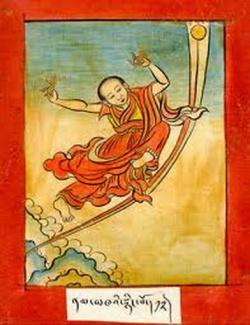Buddhism and Karma
Lobha (greed), dosa (hatred) and moha (delusion and confusion) are seen as the primary sources of wrong deeds. Merits and demerits accorded by karma are thought to be carried into later lives as humans or animal, into Buddhist hell or purgatory and into the realm of ghosts. In some schools of thought nirvana and the end of the reincarnation cycle can not be realized until all and karma is worked off.
Good karma and bad karma are seen as independent bodies that can not affect or cancel out one another.” Karma is also something that is “one’s own” but generally needs other to be realized, and is sometimes viewed as volition and will not just acts. The part of One passage from an early Buddhist text goes: “when one has willed one does a deed by his body, speech or thought.”
Some Buddhists see karma in Judgement-Day-like terms. A Thai man told Smithsonian magazine, "In our stories, there is a place we go for judgement when we die. If we have done bad deeds, this god writes them on tablets of rotten dog skin, and if we have done good deeds he writes them on tablets of gold." [Source: Roger Warner, Smithsonian magazine]
Karma is also seen as something necessary for human and animal life to exist. Without it reincarnation would not be possible and without reincarnations material life would not be possible either. In addition, karma is meant to be approached with a live-for-moment kind of attitude, not dwelling on deeds in the past and not looking forward to possibilities in the future.
Source
by Jeffrey Hays
factsanddetails.com
